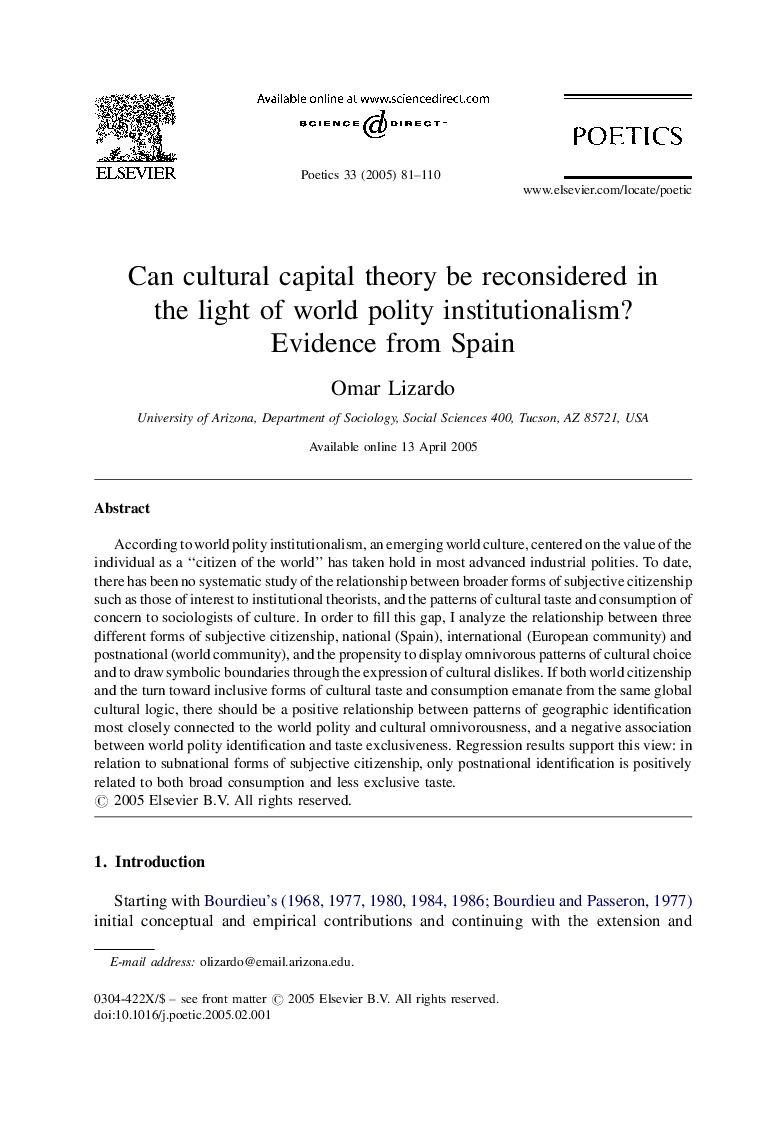| Article ID | Journal | Published Year | Pages | File Type |
|---|---|---|---|---|
| 10521416 | Poetics | 2005 | 30 Pages |
Abstract
According to world polity institutionalism, an emerging world culture, centered on the value of the individual as a “citizen of the world” has taken hold in most advanced industrial polities. To date, there has been no systematic study of the relationship between broader forms of subjective citizenship such as those of interest to institutional theorists, and the patterns of cultural taste and consumption of concern to sociologists of culture. In order to fill this gap, I analyze the relationship between three different forms of subjective citizenship, national (Spain), international (European community) and postnational (world community), and the propensity to display omnivorous patterns of cultural choice and to draw symbolic boundaries through the expression of cultural dislikes. If both world citizenship and the turn toward inclusive forms of cultural taste and consumption emanate from the same global cultural logic, there should be a positive relationship between patterns of geographic identification most closely connected to the world polity and cultural omnivorousness, and a negative association between world polity identification and taste exclusiveness. Regression results support this view: in relation to subnational forms of subjective citizenship, only postnational identification is positively related to both broad consumption and less exclusive taste.
Related Topics
Social Sciences and Humanities
Arts and Humanities
Arts and Humanities (General)
Authors
Omar Lizardo,
